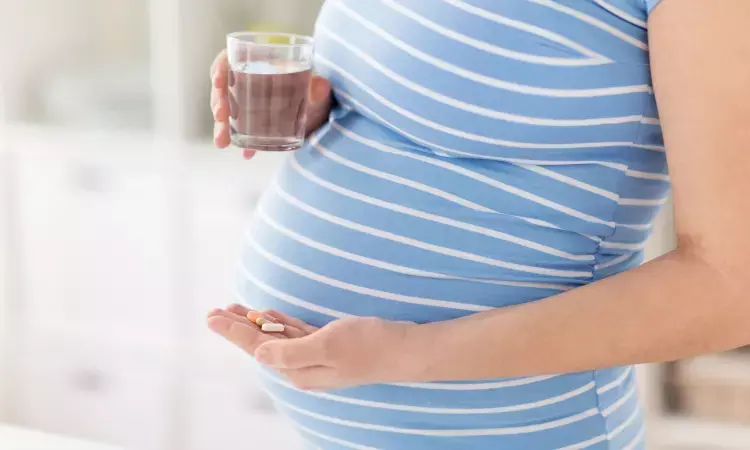- Home
- Medical news & Guidelines
- Anesthesiology
- Cardiology and CTVS
- Critical Care
- Dentistry
- Dermatology
- Diabetes and Endocrinology
- ENT
- Gastroenterology
- Medicine
- Nephrology
- Neurology
- Obstretics-Gynaecology
- Oncology
- Ophthalmology
- Orthopaedics
- Pediatrics-Neonatology
- Psychiatry
- Pulmonology
- Radiology
- Surgery
- Urology
- Laboratory Medicine
- Diet
- Nursing
- Paramedical
- Physiotherapy
- Health news
- Fact Check
- Bone Health Fact Check
- Brain Health Fact Check
- Cancer Related Fact Check
- Child Care Fact Check
- Dental and oral health fact check
- Diabetes and metabolic health fact check
- Diet and Nutrition Fact Check
- Eye and ENT Care Fact Check
- Fitness fact check
- Gut health fact check
- Heart health fact check
- Kidney health fact check
- Medical education fact check
- Men's health fact check
- Respiratory fact check
- Skin and hair care fact check
- Vaccine and Immunization fact check
- Women's health fact check
- AYUSH
- State News
- Andaman and Nicobar Islands
- Andhra Pradesh
- Arunachal Pradesh
- Assam
- Bihar
- Chandigarh
- Chattisgarh
- Dadra and Nagar Haveli
- Daman and Diu
- Delhi
- Goa
- Gujarat
- Haryana
- Himachal Pradesh
- Jammu & Kashmir
- Jharkhand
- Karnataka
- Kerala
- Ladakh
- Lakshadweep
- Madhya Pradesh
- Maharashtra
- Manipur
- Meghalaya
- Mizoram
- Nagaland
- Odisha
- Puducherry
- Punjab
- Rajasthan
- Sikkim
- Tamil Nadu
- Telangana
- Tripura
- Uttar Pradesh
- Uttrakhand
- West Bengal
- Medical Education
- Industry
Hypertensive pregnancy disorders linked to higher risk of cardiac events later in life

Women with hypertensive disorders of pregnancy (HDP), such as gestational hypertension or preeclampsia, are at a higher risk for developing cardiovascular disease (CVD) later in life. Although these conditions are recognized as risk factors by the American Heart Association and American College of Cardiology, the extent of the relationship and how to intervene to reduce risk has remained unclear. To investigate the relationship between a hypertensive pregnancy and the onset of CVD, researchers at the Brigham followed 60,739 mothers for incident CVD after their first birth using data from the Nurses' Health Study II. In doing so, they discovered that women with HDP had a 63 percent higher rate of CVD events compared to women who had normal blood pressure during pregnancy.
The increased risk of CVD was not explained by shared risk factors, including pre-pregnancy body mass index, smoking, and parental history of CVD. The researchers also found that the majority of the increased risk (64 percent) was jointly accounted for by the subsequent development of chronic hypertension, hypercholesterolemia, type 2 diabetes, and/or weight gain after first birth.
These established CVD risk factors accounted for an even higher proportion of the CVD risk among women with gestational hypertension (84 percent) than among those with preeclampsia (57 percent). Researchers also found that the overall relationship between HDP and CVD appeared to be driven by underlying relationships between preeclampsia and coronary heart disease, and between gestational hypertension and stroke.
"Women with a history of gestational hypertension or preeclampsia should be informed that they are at increased risk for cardiovascular disease events. Screening and prevention efforts in those with a history of gestational hypertension or preeclampsia should target the established cardiovascular disease risk factors of chronic hypertension, hypercholesterolemia, type 2 diabetes mellitus, and overweight/obesity," said study author Jennifer J. Stuart, ScD, of the Division of Women's Health. "We are eager to continue investigating strategies to reduce long-term cardiovascular risk following hypertensive pregnancy and to empower and equip these patients to improve their cardiovascular health in the years and decades after delivery."
For further information, visit here:
http://dx.doi.org/10.1016/j.jacc.2022.03.335
Dr Kamal Kant Kohli-MBBS, DTCD- a chest specialist with more than 30 years of practice and a flair for writing clinical articles, Dr Kamal Kant Kohli joined Medical Dialogues as a Chief Editor of Medical News. Besides writing articles, as an editor, he proofreads and verifies all the medical content published on Medical Dialogues including those coming from journals, studies,medical conferences,guidelines etc. Email: drkohli@medicaldialogues.in. Contact no. 011-43720751


